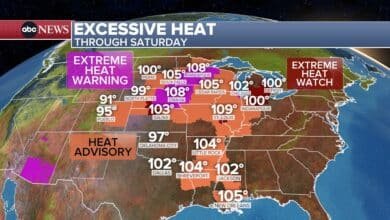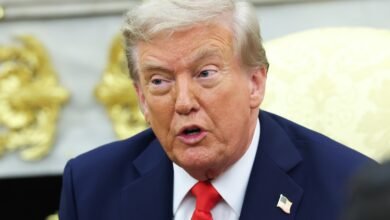Trump addresses the UN General Assembly as the future of the Palestinian State and Gaza that probably dominates
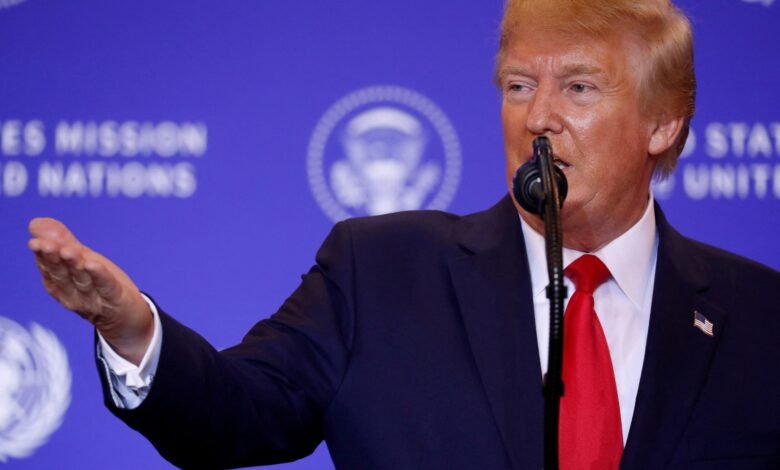
President Donald Trump and foreign world leaders will meet this week at the United Nations General Assembly, where Trump is expected to give the first speech of his second term to the annual meeting of world leaders on Tuesday, although Trump will be largely isolated from more than half of the member nations and key allies over the war in Gaza.
All eyes will be in Trump, who in recent months has started mass cuts to foreign aid of the United States from his return to the White House, eliminating support for UN agencies and helps him as humanitarian crises abroad continue to grow.
The appearance of Trump in the 80th session of the UN General Assembly occurs when several prominent world leaders, and the key allies, formally recognize the Palestinian status as the international alarm continues to build on the crisis of war and starvation in the ongoing in progress in Gaza.
On Monday, France and Saudi Arabia will hold an international peace conference in support of the solution of two states that will take place in New York. It is expected that France and several other countries recognize Palestinian status, joining more than 140 countries that have already recognized Palestinian status.
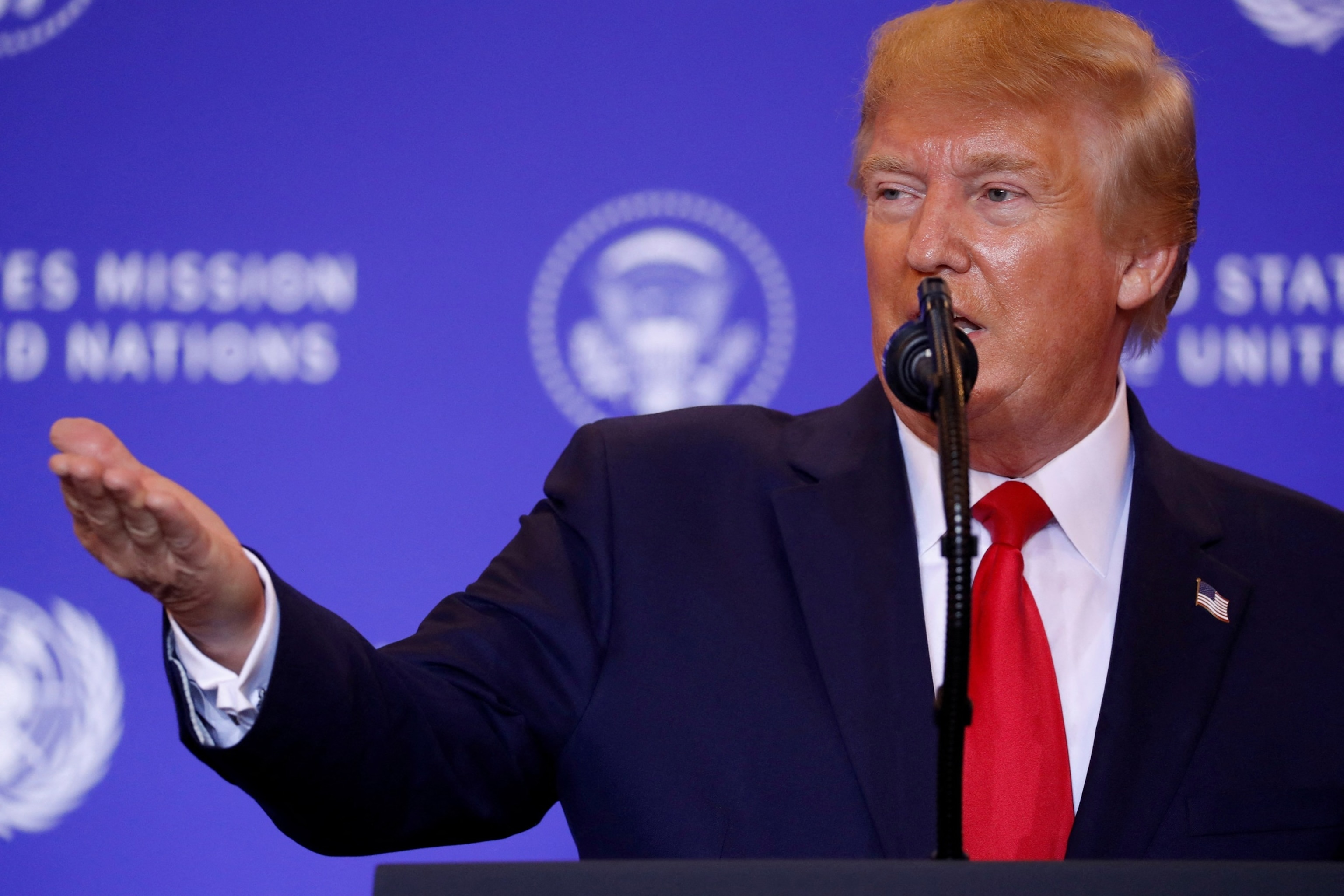
President Donald Trump directs a press conference outside the 74th session of the United Nations General Assembly in New York on September 25, 2019.
Jonathan Ernst/Reuters
The leaders of the United Kingdom, France and Canada have maintained that there should be the end of the war in Gaza, including the immediate liberation of all the remaining hostages, and the understanding that Hamas would no longer be a leading authority in Gaza after the war.
The French have said that 10 countries would formally recognize the status of Palestinian status at the meeting: Andorra, Australia, Belgium, Canada, Luxembourg, Portugal, Malta, Great Britain and San Marino with France.
The United States will not participate in the conference and was one of the 10 countries that voted against the resolution of the General Assembly that supports the high -level meeting.
Israel, meanwhile, has promised to take measures in formal recognition reprisals, which may include annexations of parts of the occupied West Bank.
The Israeli prime minister, Benjamin Netanyahu, was unequivocal in rejecting the international conference planned in a statement on Sunday. “I have a clear message for those leaders who recognize a Palestinian state after the terrible massacre on October 7, 2023: it is giving a great reward for terrorism,” said Netanyahu.
“And I have another message for you: it will not happen. A Palestinian State will not be established west of the Jordan River.”
Critics of recognition, which include the governments of the United States and the Israelis, have long sentenced the plan, saying that it only moves emboldener to Hamas and even more isolate Israel and the Trump administration on the international stage.
American officials have said that action is largely “performative” and “symbolic” and will do nothing to help repair the relationship between the Palestinians and the Israeli government.
“I think that a large part of that is a reaction to several nations around the world that decide to unilaterally declare a Palestinian State,” said Secretary of State Marco Rubio to the reports that Israel was seriously discussed in parts of the West Bank, which some say it would be illegal according to international law.
“We warn them that we thought it was counterproductive. In fact, we thought that their undercutter negotiations, because they emboldened Hamas, and we believe that the future perspectives of peace in the region are undermined. We thought it was reckless to do so, and I think he is seeing him as a contractual,” Rubio told the journalists last week.
The United States, the main ally of Israel, has opposed recognition and last month moved to deny and revoke visas to the Palestinian delegation, even for Palestinian President Mahmoud Abbas before Monday’s International Conference, accusing the Palestinian leadership of the Socavadores Peace efforts. The Palestinian State has permanent observer status at the UN and is not a full -fledged Member State.
But on Friday, the UN General Assembly voted overwhelming to allow Abbas to address the meeting of world leaders this week practically after the Trump administration declined to grant a visa to Abbas. The motion approved by a 145-5 vote with six abstentions. The United States and Israel voted against the motion.
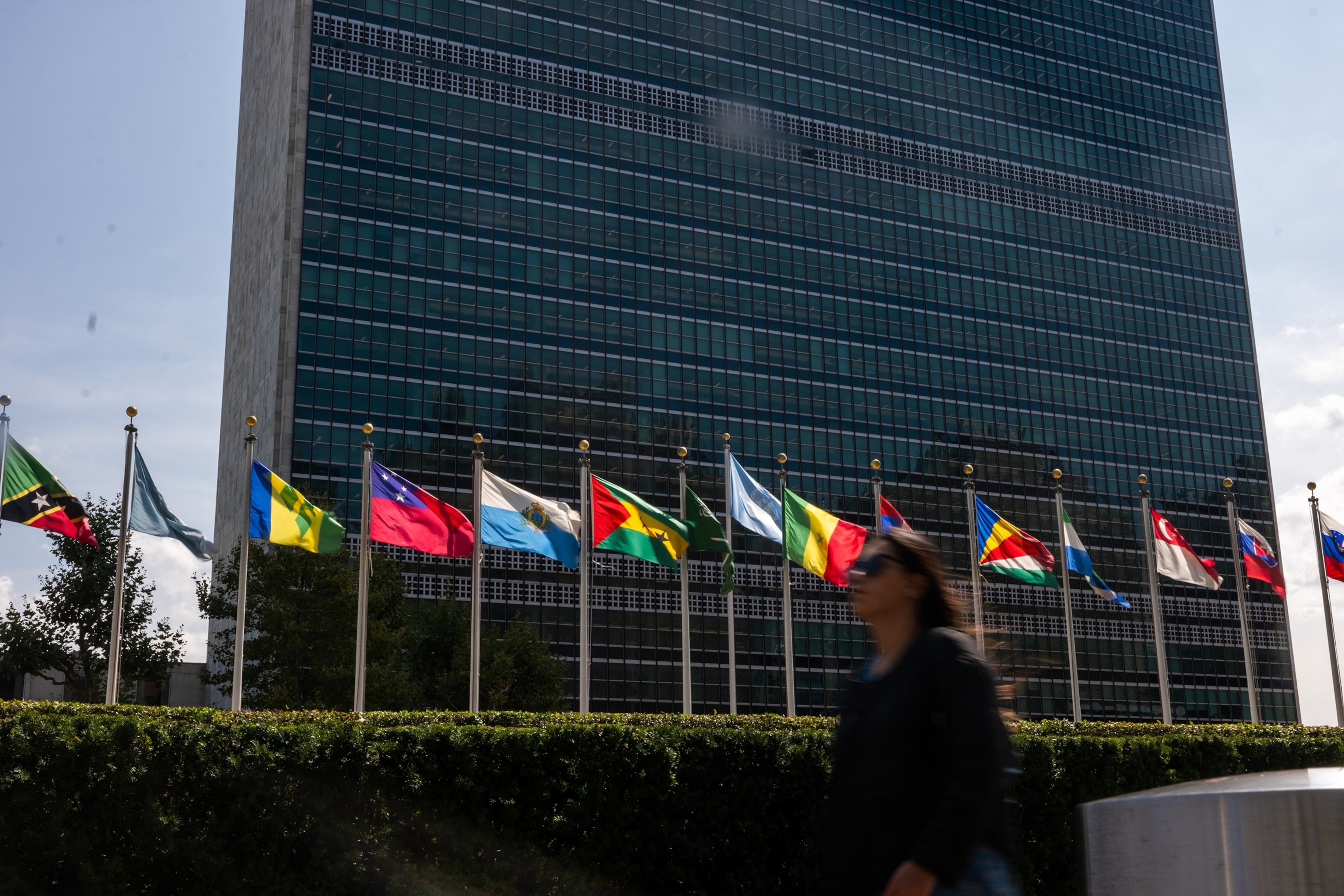
The United Nations headquarters is seen in Manhattan on September 9, 2025 when the UN General Assembly, 80, began with thousands of world -class delegates and leaders who hope to attend in the coming weeks.
Spencer Platt/Getty Images
On Sunday, the United Kingdom, Canada and Australia formally recognized a Palestinian state, three countries that are some of the closest allies in the United States and Israel. The measure occurred after an official state visit to the United Kingdom, during which he expressed his disapproval of the plan.
Other experts remain distrustful of recognition, which suggests that, although the recognition of a Palestinian State is a decision for a long time, it must be accompanied by a more concrete action against the Israeli occupation, which launched a land invasion last week. This action could include an embargo on weapons, sanctions and more support for international courts investigating the possible crimes of Israel.
Trump is expected to meet with Netanyahu on the margin on this year’s hollow.
Trump is also expected to meet with other foreign leaders throughout the week, including the president of Syria, Ahmed al-Sharaa, who will be a new addition to the meeting. The meeting with Trump will mark his second meeting this year while the Syrian leader faces the challenges of rebuilding the country after years of Civil War under the Bashar Al-Assad regime.
Iran’s nuclear program will also be a Top Agenda article this year, since the sanctions against Tehran that were raised 10 years ago are scheduled to be restored. France, Germany and the United Kingdom moved last month to trigger the “Snapback Mechanism”, which automatically imposes all UN sanctions that were in force before the nuclear agreement.
Trump will also meet with the Ukrainian president, Volodymyr Zelenskyy, apart this week about the promised guarantees of post -war security, that Zelenskyy has said that they are fundamental to resolve the war with Russia. The Russian president, Vladmir Putin, has so far refused to participate in an effort in good faith to end the war after almost four years of struggle.

